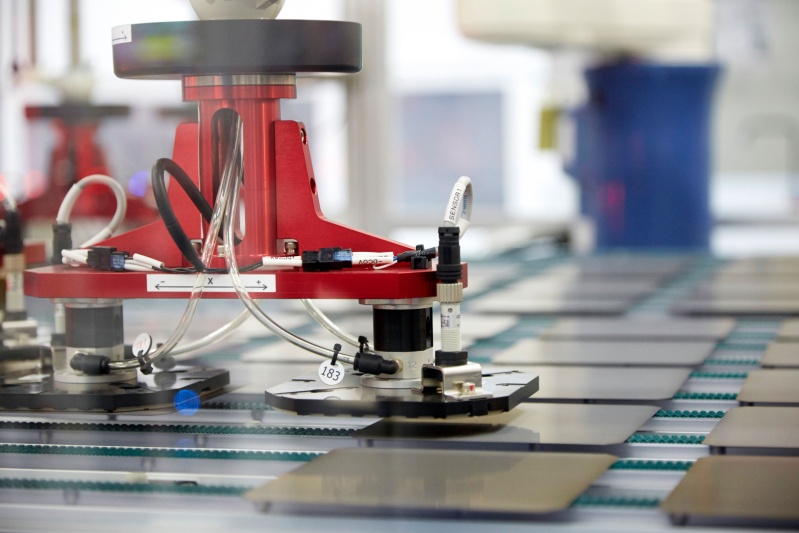South Korea-based PV producer Qcells has kicked off an IP dispute with “several” unnamed “global manufacturers” over its LECO technology. Qcells acquired the technology in 2022. It is deployed primarily in TOPCon production, to enhance the durability and efficiency of solar cells.
Earlier this week, Qcells issued infringement notices to a number of manufacturers, accusing them of having used the company’s IP without permission.
“Qcells has requested global solar manufacturers to discontinue the manufacture, use, offer to sell, sale and marketing of, or importation of the products using the LECO technology in violation of Qcells patents,” said the company in a statement.
LECO was developed in Germany by equipment supplier Cell Engineering, which was later acquired by Qcells. The two companies have been collaborating on the technology since 2018. Qcells reports that it integrated the LECO technology into all of its production lines since the first quarter of 2022.
LECO is a laser technology that enhances the electrical contact of PV cells. While initially it was developed for application in aluminum back surface field (BSF) solar cells, it was subsequently applied to passivated emitter rear cell (PERC), and then TOPCon. It is in the latter technology that its greatest efficacy has been evident – with LECO able to boost power output and reduce degradation in TOPCon cells.
Speaking to pv magazine in 2024, manufacturing analyst Alex Barrows, the head of PV at Exawatt, said the technology “solved the problem of contacting the emitter at the top of TOPCon” while reducing the amount of aluminum needed in the paste. Thinner metallization lines could then be printed on the front of the cell, boosting efficiency, while the cell was less sensitive to moisture due to the reduction or elimination of aluminum.
Relatively easy to implement into PV production lines, laser-assisted metallization was widely adopted in TOPCon production lines by the start of 2024, according to Taiwanese analyst Amy Fang, from InfoLink. Whether that process is LECO, as Qcells claims, or something sufficiently different will now be a matter for the courts.
“The recipient companies are currently producing and selling products using LECO technology, for which Qcells currently holds the patents,” stated Qcells this week. Qcells had initially “affirmed its ownership” of the IP, in a public statement, in October 2023.
Market impacts
The LECO action by Qcells is the latest of a series of IP disputes over TOPCon. In China, there have been a series of claims and counterclaims made by major manufacturers, the latest being action taken by JinkoSolar against Longi this month.
In the United States, Jinko has taken similar action against Japanese producer VSUN. Thin film manufacturer First Solar staked its claim over TOPCon in July 2024, despite having abandoned its efforts to deploy the technology more than a decade ago. In its third-quarter 2024 earnings call, First Solar revealed that it was investigating whether JinkoSolar, Canadian Solar, JA Solar, Longi and Trina Solar had infringed on its TOPCon IP.
Further muddying the waters, in July 2024 researchers from the UNSW published a paper in the journal Solar Energy Materials and Solar Cells in which they reported that a laser process developed by Jolywood had similarly positive impacts as LECO in TOPCon cells. The process is called Jolywood Special Injected Metallization (JSIM).
IP claims in solar manufacturing have rarely had major market impacts in the past. The rapid rate of technological change in the PV industry tends to outpace the legal process. However, the number of disputes regarding TOPCon is beginning to mount, raising questions as to whether this dynamic may be set to change.
This content is protected by copyright and may not be reused. If you want to cooperate with us and would like to reuse some of our content, please contact: editors@pv-magazine.com.









By submitting this form you agree to pv magazine using your data for the purposes of publishing your comment.
Your personal data will only be disclosed or otherwise transmitted to third parties for the purposes of spam filtering or if this is necessary for technical maintenance of the website. Any other transfer to third parties will not take place unless this is justified on the basis of applicable data protection regulations or if pv magazine is legally obliged to do so.
You may revoke this consent at any time with effect for the future, in which case your personal data will be deleted immediately. Otherwise, your data will be deleted if pv magazine has processed your request or the purpose of data storage is fulfilled.
Further information on data privacy can be found in our Data Protection Policy.